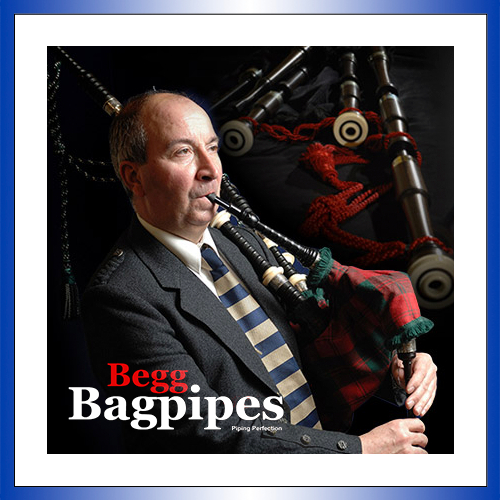
Dr. Peter Cooke, the highly respected ethnomusicologist, has died. He was 90.
Peter was born in Cardiff, Wales in 1930. His music teaching career began in secondary schools and as a lecturer at Redland College of Education in Bristol. He moved to Uganda in 1964 to work as head of music at Makerere College School then to establish the new music department at the National Teachers’ College at now Kyambogo University.
In 1969 he was appointed to lead research into the traditional music of Scotland at the School of Scottish Studies in Edinburgh University. Whilst there he gained a doctorate and initiated ethnomusicology courses.
Peter made over 1,000 field recordings during this time, including investigations into older styles of piping around Scotland and the music traditions in the Western Isles and Shetland Islands.
Peter wrote many scholarly articles on piping for the Piping Times and The International Piper. Stuart Letford of Bagpipe.News (and the last editor of the Piping Times) said: “Peter wasn’t a piper himself but played piano, viols and recorders. In fact, he was Musical Director of the Birmingham Branch of the Society of Recorder Players.
“Outside of music, sailing was a much loved pastime. With his family he explored the coastal waters of Scotland. It was always fascinating to speak with him.
“I last heard from him in August 2020, shortly after he celebrated his 90th birthday. He thanked the team at Bagpipe.News for re-publishing his International Piper series on the changing styles in pibroch playing. He said: ‘I suspect the message still needs to reach home to some pipers and to competition judges in particular.’”
Dr Simon McKerrell said: “The attention he paid to Scottish music is a marker of how many ethnomusicologists approach research, viewing it comparatively in relation to other musical traditions around the world. That characteristic is something worth celebrating, and has not always been a facet of the more parochially-inclined researchers of Scottish music who haven’t looked beyond their primary interests to understand the music of others (and thereby learned more about ourselves).”
Peter retired in 1989 but continued to lecture and undertake archival work. He took a part-time post as a lecturer in Practical Ethnomusicology and Scottish Music, at the Royal Scottish Academy of Music and Drama in Glasgow. He returned there in 2002 when he spent six months there as a consultant. Peter was also an External Examiner for the BA (Scottish Music) course.
In 2019 he was inducted into the Scottish Traditional Music Hall of Fame for his services to traditional music.

Pipe Major Tony Crease of the Royal Scots Dragoon Guards (RSDG), died yesterday at home in Yorkshire. He was 73 and had been ill.
Tony was born in the Scottish Borders town of Peebles. He entered piping’s history books when in 1972, aged 25, he led the RSDG to the top of the pop music charts with its recording of Amazing Grace. He was Pipe Major from 1972-1978.
It was in 1971 when Tony took over from Pipe Major Jimmy Pryde following the amalgamation of the Royal Scots Greys and 3rd Carabiniers to form rhe Royal Scots Dragoon Guards. At the time the recording of Amazing Grace was intended to be part of a larger recording to mark the amalgamation of the two regiments.
Tony later became the regiment’s Regimental Sergeant Major and Quartermaster. A life-long lover of nature, he latterly provided an armed guard at the 100-acre Foxglove Covert nature reserve at Catterick Garrison, the British Army’s largest camp.


